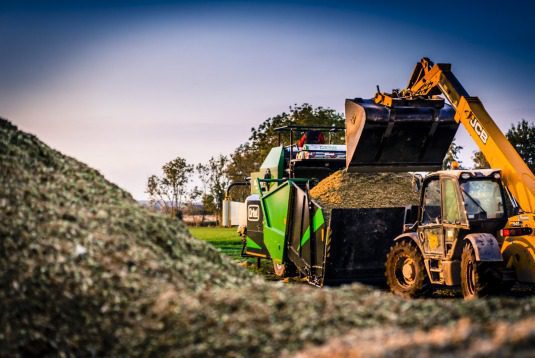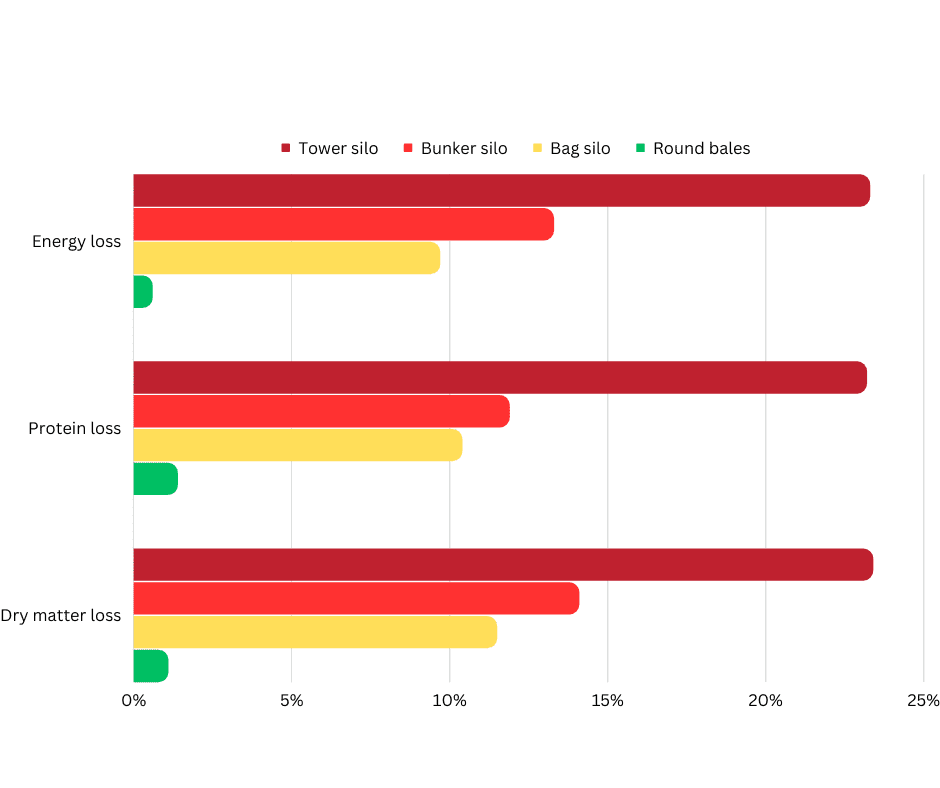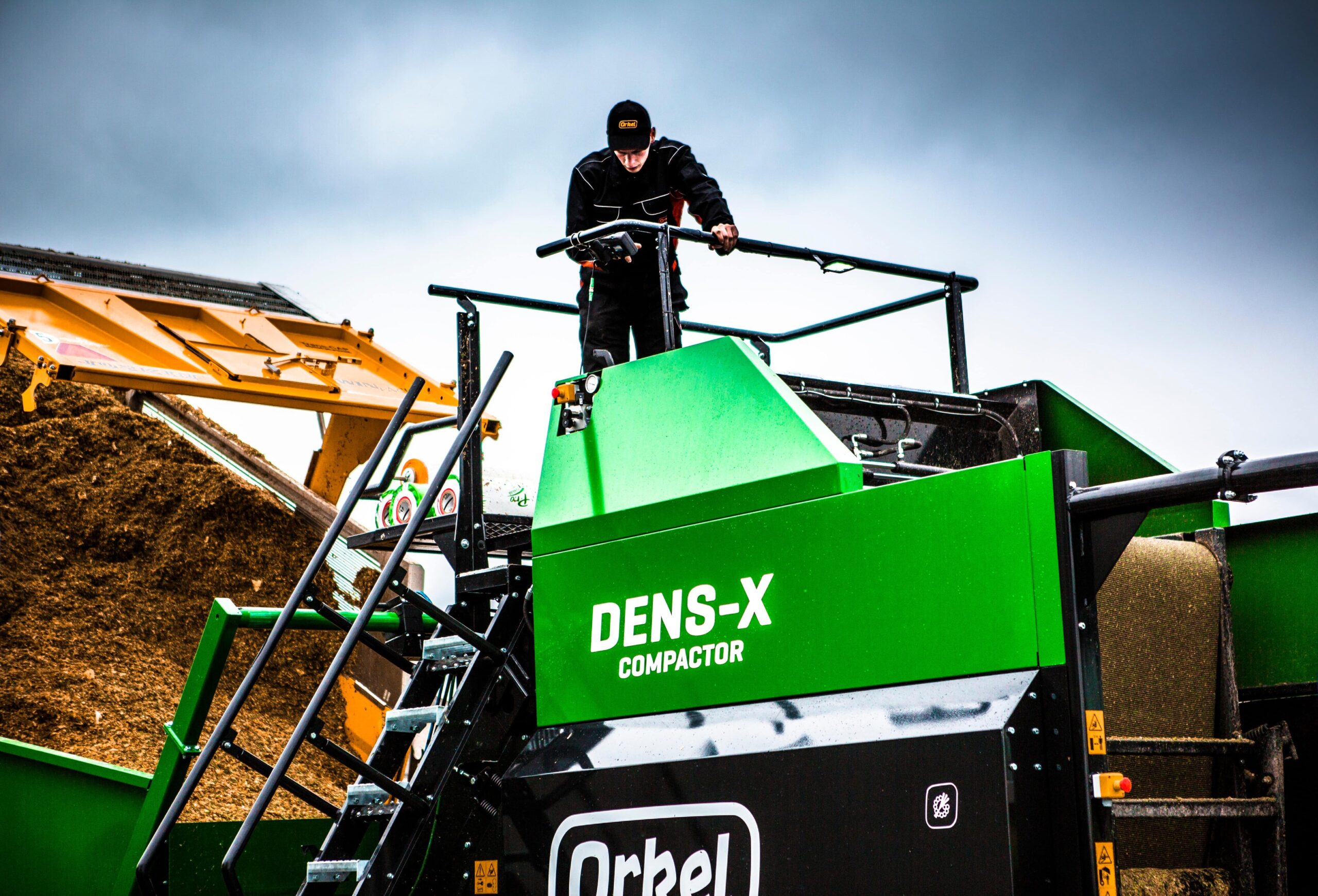Why would I consider investing in a compactor when I already own a silo for storing my feed?
This is the case for many of our customers who have worked within the forage market for a while, and are presented with Orkel’s technology.
Today, many farmers use bunker silos as their primary feed storage and are content with this solution.
But why do many of Orkel’s customers use an Orkel compactor in addition to their silo, and why do some of them end up discarding their silo completely?
Let’s dive into the differences between bales and bunker!
Practical benefits
As we carefully described in our article on Benefits of Baling, baling your forage with an Orkel compactor provides four overall benefits compared to traditional storage.
What makes baling practical?
- Compaction
Reduce the forage volume (through higher density) while excluding oxygen - Wrapping
Bales are not compromised in cases of heavy rain - Storage
Allows for easy stacking and relocating the forage, increasing space efficiency - Transport
Easier transport due to already compartmentalized material, resulting in easier market access
Significant differences in losses
A study conducted by the Swedish University of Agricultural Sciences (SLU) confirms there are significant differences in forage quality based on how the forage is stored.
The study was conducted across 12 different farms from 12 bunker silos, 6 bag silos, 3 tower silos and 2×60 round bales. Samples were collected three days a week, a total of 650 samples during harvesting and another 300 samples during feeding.

Invisible losses
The most noteworthy discovery were the invisible losses due to fermentation.
The average losses were 14,1% for the bunker silos, 11,5% for bag silos
and 23,4% for tower silos. The round bales, however, had an average loss of 1%.
The low loss average in round bales are most likely due to low oxygen supply resulting from a denser packed forage together with a shorter time span from opening to feedout.

Some additional key numbers from the conducted study:

WHAT IS ULTIMATELY THE OUTTAKE FROM THIS STUDY?
To put it simply; This means that the forage in bunker, bag and tower silos lose substancial amounts of energy and protein during storage, while forage in round bales do not.
The general rule of thumb is the less energy and protein in the forage, the more forage your animals will need in order to maintain a high production. Based on the result of this study, your animals will get more energy from less forage if your forage is stored in bales!
Does this mean that all silos are bad?
No!
Silos offer a good storage solution for farmers, which is the reason for why it always has been such a popular storage solution worldwide.
HOWEVER, SILOS ARE DEMANDING
Silos have the potential to be good storage solutions if the user is familiar with optimal silo management, which unfortunately is too great a demand for your average farmer. Common errors such as overfilling silos, low packing density, inadequate sealing techniques, and poor inspection are often the source to why the bulk material deteriorates.
Additionally, a silo under optimal conditions would not retain the forage nutrients as consistently as a high-density bale under optimal conditions, which is illustrated in the calculated losses mentioned above.

Why not start today?
So what should you choose, round bales or silo? To sum up, the transition from silo to bales represent a significant investment for most farmers, however, the the long-term benefits are undeniable. And if you have little experience with round bales, why not consider an overlapping transition as many of our customers? Explore our range of agricultural compactors today!